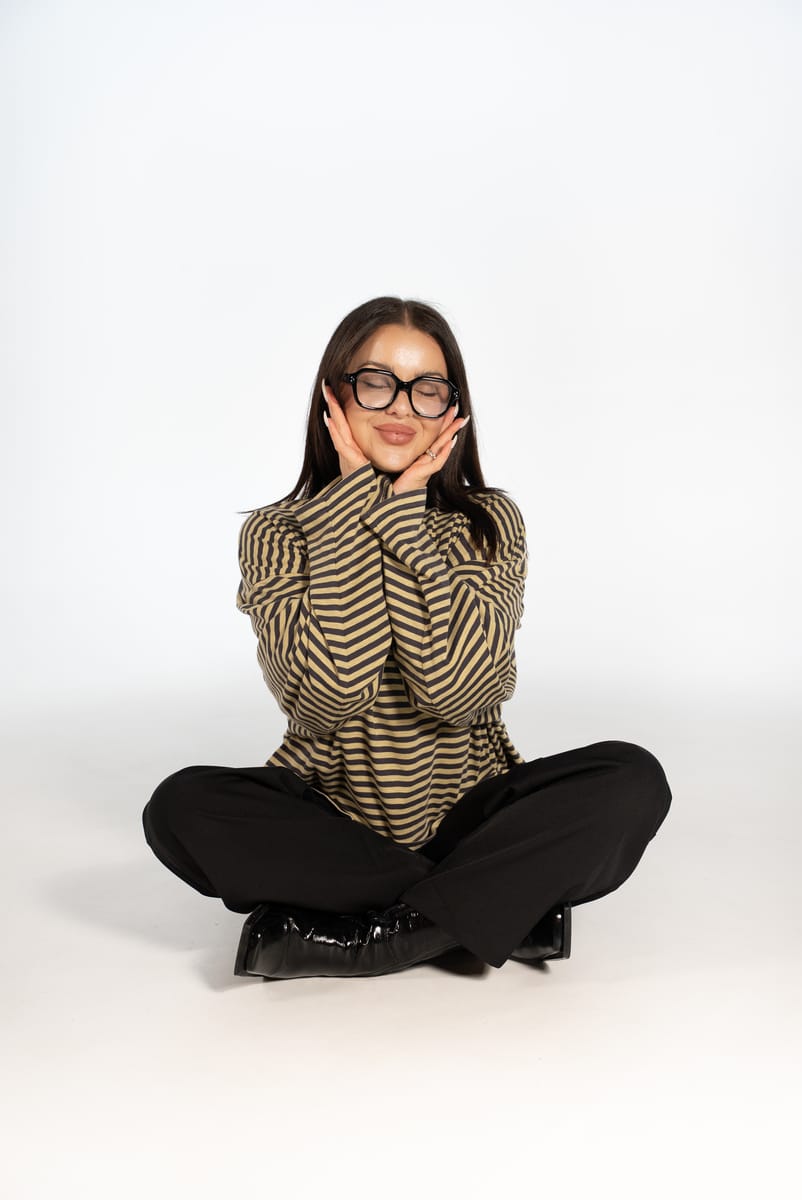
I remember a time (not so long ago) when brands would literally bend over backwards to get a single post from an influencer with a blue tick and a ring light.
The bigger the audience the bigger the budget, right? Not so much anymore. Something’s shifting, and it’s not the algorithm. It’s us.
In recent times, younger audiences have been gravitating toward a new breed of creator: the micro-expert. People who actually know things, not just nail aesthetics (no shade.)
The vibe shift
I’m not saying influencer marketing is over. I’m saying it grew up, got a PhD, and settled down in a nice townhouse with a family. According to Stack Influence, creators with between 10,000 and 100,000 followers average a 3.86% engagement rate. That's compared with only 1.21% for those over a million. Another study found that micro-influencers can pull 5–10% engagement, while macro-influencers hover around 2–4%.
But it’s not just about engagement, it’s about credibility. This 2025 research paper found that 25.1% of people see micro-influencers as more trustworthy. Bigger creators scored just 13.2%. Simply put: smaller followings mean stronger connections.
Why everyone’s getting bored of big-name influence
1. Authenticity fatigue. We’ve reached peak #ad. There are only so many times someone can “casually” hold a vitamin gummy or lip gloss before it starts to feel like a parody. A dystopian one, at that. Gen Z, in particular, has finely tuned bullsh*t detectors. They can sense a forced collaboration before you can say “campaign".
2. The return of useful content. Creators who teach, explain, or help, even in small ways are winning attention. Why do you think the fitness girlies are doing so well? Despite the obvious shift in body standard from BBL to teeny tiny 90s chic again, we’re in the “from hype to help” era. People don’t want to be sold to. They want to learn something, solve something themselves, or be genuinely entertained.
3. Algorithmic claustrophobia. When everyone’s posting the same trending audio with the same text overlay, it all starts to blur. Micro-experts often ignore the trend treadmill entirely. They instead focus on depth, which ironically makes them stand out.
4. Community over clout. The micro-expert doesn’t talk at their followers, they talk with them. They respond to comments, share niche advice, and remember inside jokes. The result is a kind of digital intimacy that mega-influencers just can’t replicate at scale.
I got new rules I count ‘em
This doesn’t mean you should ghost the macro-influencers entirely, obviously. Awareness still matters. But if you’re chasing conversion, credibility, or cultural relevance? You need to diversify your influencer mix.
Here’s what that looks like in practice:
Stop counting followers, start counting fit. A micro-creator who reaches 20k hyper-engaged skincare enthusiasts might outperform a million-follower lifestyle blogger who’s half-checked out. That’s just the truth.
Invest in relationships, not reach. Instead of one-off shoutouts, build long-term partnerships. Let the creator co-develop product content or campaigns. The more organic it feels, the better it performs.
Measure the right things. Look beyond views. Track saves, comments, referral codes, or repeat engagement. These are the signals that actually map to influence.
Don’t underestimate niche obsession. Micro-experts live in micro-communities, and that’s where consumer decisions increasingly happen. You don’t need everyone, you just need your people.
The psychology behind the unfollow
Influencer culture used to run on aspiration, the idea that you followed someone because you kind of… wanted their life. But now, that formula feels outdated. We're now in a world where authenticity, relatability, and self-expression outrank perfection.
According to Morning Consult’s 2024 Gen Z report, over 60% of Gen Z prefer creators who “share useful knowledge or skills” over those who “showcase an aspirational lifestyle". The follower-to-mentor dynamic is replacing the fan-to-idol one.
That’s why TikTok’s favourite voices now sound more like friends or teachers than celebrities. The rise of creators like dermatologists, fitness physiologists, and ADHD coaches all talking in plain language proves people crave competence. Not clout.
What this really means
This “great unfollow” isn’t rebellion, but evolution.
We’ve grown tired of being advertised at. We’re craving conversation, curiosity, and credibility. It’s not that influencers have lost influence, it’s that the word influence itself now means something else.
So, if your 2026 marketing plan still revolves around a big-name influencer holding your product and smiling for a three-second story frame? You’re already behind bud. The future is small, specific, and smart.
-Sophie Randell, Writer
Not going viral yet?
We get it. Creating content that does numbers is harder than it looks. But doing those big numbers is the fastest way to grow your brand. So if you’re tired of throwing sh*t at the wall and seeing what sticks, you’re in luck. Because making our clients go viral is kinda what we do every single day.

